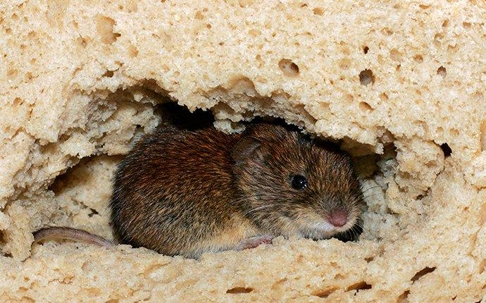Keeping tiny rodents out of your home can be a lot harder than you might think. As invasive pests, rodents are good at finding ways inside and staying hidden. By the time the signs of their activity are obvious, it can be way too late to get it under control on your own. Instead, making sure to keep up on proper prevention and partnering with local experts will help keep your home protected from rodents and the problems they cause.
Rodents: What’s Important To Know
The two most common invasive rodents are mice and rats, which come in different varieties but all cause similar problems for property owners. From field mice to roof rats, rodents can cause damage, pose health hazards, and generally contribute to unsanitary conditions. Early and frequent prevention is important for curbing these issues:
- Damage: Rodents chew on hard surfaces to keep their ever-growing front teeth filed down, which means marks all over and chewed-through fabrics and wires.
- Disease: Both mice and rats carry dangerous diseases like rabies and plague, not to mention the parasites they may be carrying.
- Odor: Rodent urine and feces don’t have to be there long to fill your whole house with nasty smells. The fact that they often nest inside of walls or vents doesn’t help.
What Attracts Rodents?
Rodents are so determined to get into human homes because they provide food, shelter, and water all under one roof. That’s why, unless you’re addressing the factors that attract rodents in the first place, they’ll find ways to get inside no matter what else you might try. Here are the things that attract rodents:
- Food: Rodents will forage for crumbs and food traces or attack stored packaging directly to stay fed. That means proper food storage and routine cleaning for deep messes are both required.
- Trash: Rodents will also get at the food we throw away, so proper trash storage in secure bins -- indoors and outside -- is crucial.
- Clutter: Rats and mice often nest in storage areas like attics and crawl spaces where containers and other clutter provide them with lots of potential homes. Reducing clutter and regularly moving boxes for inspection will help reduce harborage points.
How Rodents Get Inside
Of course, you’ll also need to take steps to fortify your home from invasive pests in general. That includes staying up on maintenance both inside and out in the yard:
- Crack sealing: Rodents can dig at and squeeze through tiny spaces to gain access to your home. That means you should check for even small cracks or holes in your exterior regularly, making repairs as you go.
- Landscaping: Overgrown grasses or decorative plants can provide rodents with hiding spots right outside your home. It doesn’t take long for them to find ways inside when they’re that close, to begin with.
- Debris: The same goes for piles of yard debris, wood, or other refuse that rodents can use as nesting grounds.
Nothing Beats Expert Guidance
While you can try to keep up on all that on your own, the truth is that professional assistance is the only way to guarantee protection from pests like rodents. Even homeowners who keep clean and well-maintained homes can find themselves with a rodent infestation -- that’s how good they are at finding or creating ways to get inside. Instead of trying to tackle it all by yourself, turn instead to Prosite, where we can offer assistance on proper prevention and quickly get rid of any problems that pop up. Let us get started right away on an inspection of your home, to determine if rodents are already there or could soon become a problem.
For true protection from rodents, contact Prosite today.

